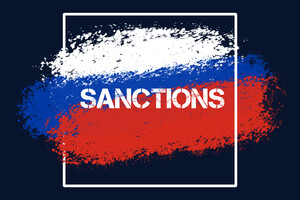In particular, companies from China were blacklisted.

The US Department of Commerce has included 36 companies with countries to the list of entities restricted access to US technology and goods due to violations of US international sanctions laws. This was reported by the Voice of America.
Of the 36 companies on the list, 25 are based in China, the rest in Russia, the UAE, Lithuania, Pakistan, Singapore, the United Kingdom, Uzbekistan, and Vietnam.
In particular, the Russian company Intertech Instruments was punished for illegal supplies to Iran.
Also, six companies were included in the list for supporting Russia's military-industrial potential, violating the sanctions imposed after Russia's invasion of Ukraine.
The US Department of Commerce said that Chinese companies that had been blacklisted before the Russian war against Ukraine supplied “worrying” goods to Russia and continued to supply Russian counterparts against whom the West had imposed sanctions.
“Today's actions send a strong signal to organizations and individuals around the world – if they try to help Russia, the United States will punish them,” said Deputy Secretary of Commerce Alan Esteves.
It is noted that US companies planning to supply goods or services to blacklisted persons must obtain special permission from the Ministry of Commerce.
Earlier, officials said that Beijing generally complies with international sanctions against Russia. .
The Chinese embassy in the United States did not comment on the allegations against Chinese companies, but said Beijing was not providing military assistance to Russia or Ukraine, saying “necessary measures” would be taken to protect the rights of Chinese companies. p>
Read also: Kuleba called for sanctions against Gazprombank, through which Russia pays its military
Earlier it was reported that the US Treasury Department imposed sanctions against 70 organizations , related to the Russian military industry, as well as against 29 people. In particular, sanctions were imposed on the state corporation Rostech , as well as all its subsidiaries with a share of more than 50 percent.




